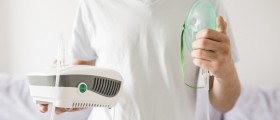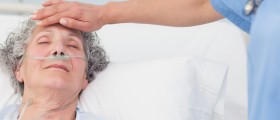
When we use the phrase ‘end stage’, we refer to the final phase in the course of a progressive disease. As regards COPD, the four year survival rate of stage IV patients is below twenty per cent, so the problems associated with this disease can be grave. So, what is considered to be the ‘end stage’ of COPD?
Overview
The different stages of the disease are classified according to severity. Stage I is considered mild, stage II moderate, stage III severe and stage IV very severe. ‘End stage’ COPD refers to stage IV - very severe COPD. Transition from stage to stage depends on spirometry measurement of FEV1.
Many stage IV sufferers are not bed-ridden or in a terminal stage of their lives. In fact, a lot of stage IV patients exercise well, eat well and are able to enjoy life. However, there are also many patients who suffer serious, life-threatening problems during stage IV of COPD. Your health at this stage will depend on how much you smoke, how regularly you exercise, how you nourish yourself and your overall fitness level.
Treatment
For some, surgery might have benefits with regard to the treatment of COPD. This, however, will not work for most COPD patients. Depending on the severity of the disease, the approach to treatment will most likely focus on providing relief from pain rather than the prolonging of life.
Some medications and treatments that might be prescribed include morphine, bronchodilators and glucocorticoids. Morphine can help greatly with combating dyspnea, but does have side effects. Bronchodilators are also used to treat dyspnea, while glucocortoids might be advisable for those whose FEV1 is below fifty per cent. The use of oxygen can help reduce breathlessness, as can NIPPV, which might also help to reduce carbon dioxide retention. Pulmonary rehabilitation can lead to positive results during all stages of COPD. A lack of proper nutrition can be a risk with regard to COPD, so doctors might provide advice in this matter. Doctors might also advise or offer psychological or social support.
In order to fight COPD, you must stop smoking. This is often the most vital step you can take in terms of treatment. Quitting smoking can make you feel better and will almost certainly prolong your lifespan. Additionally, it is absolutely necessary to undertake regular physical exercise and maintain a healthy diet. Remembering to exercise - daily, if possible - and eat well is the foundation of recovery, so make sure to try and make these positive changes in your lifestyle.

















Your thoughts on this
Loading...